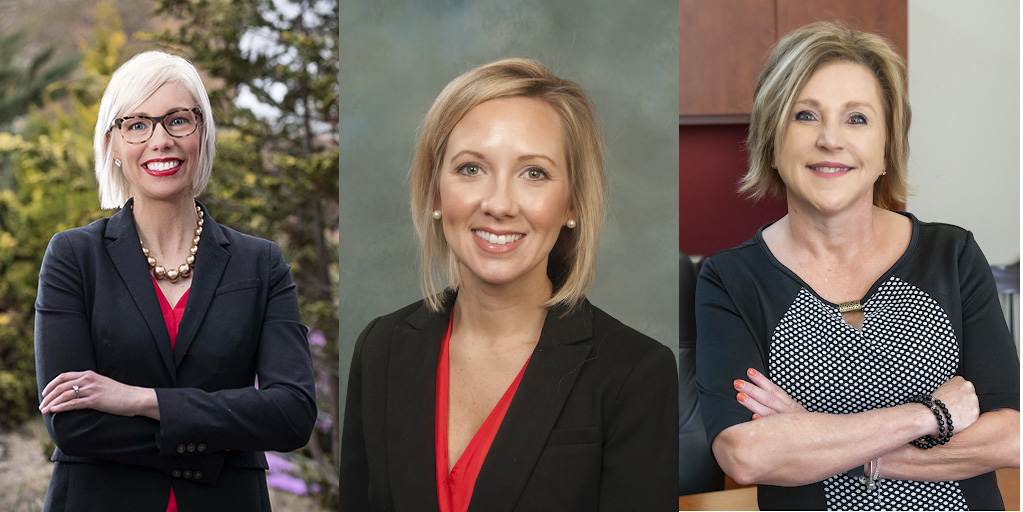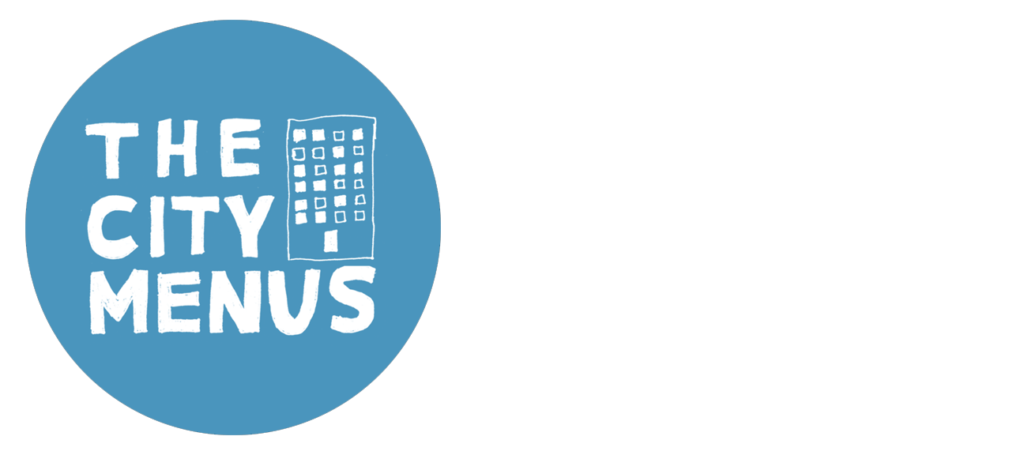
Women from across the region and beyond gathered virtually Wednesday to advise, support and encourage each other in the midst of a pandemic that changed life as we know it – and to discuss how they’ve been able to rise above the challenges presented by COVID-19.
Hosted by the University of West Georgia’s Richards College of Business, this year’s event featured Dr. Meredith Brunen, vice president for UWG’s University Advancement and CEO of UWG Foundations; Lauren Lee, manager of category management supply chain management at Southern Company; and Susan Lester, senior vice president of member and community affairs at Carroll EMC.
Dr. Faye McIntyre, dean of the Richards College of Business and Sewell Chair of Private Enterprise, moderated the event, which is in its seventh year.
“During the first few months of the pandemic, I avoided calling it the ‘new normal,’ ” McIntyre began. “I said there’s nothing normal about it. It may be our new reality, but I do think a lot of what we’re experiencing will become our normal going forward. I think it’s an appropriate topic for us to talk about this year.”
Questions from McIntyre and the audience of more than 150 women – and men – ranged from topics regarding creative remote networking to self-care to preferred meeting platforms.
Below are highlights and soundbites from this uplifting panel.
Everybody’s routine has been upended to some extent. How has your work life and home life changed during the pandemic?
Brunen: For me, the last nine months have been extremely interesting. We have bought and sold a house, moved to Georgia and joined a new community, all in the midst of COVID-19. It’s been challenging to navigate, trying to get used to a new place when you can’t get out to meet and connect with people.
Lester: Having to redefine my workspace was one of the things that was really different for me. I wasn’t set up to work from home. In the beginning, I put my computer on the dining room table because I thought I was only going to be there a few weeks. I finally found my space: I made an office out of our guest room.
What was your biggest challenge?
Brunen: We are finding that we are resilient, that we can adapt to this new normal and that we are such social creatures. We enjoy being around each other and find energy from that, but we are also finding out how vulnerable we are, and it’s challenging. In my job, there’s been a lot of opportunities these last few months to connect with people in new and different ways than we have before, and we’ve had a broader engagement as a result of connecting virtually. There’s so much importance to that relationship-building, trust-building and connecting personally, but there’s also a positive to having the virtual environment, as well.
Lee: Once we got past the initial phase of logistics with children, I would say maintaining relationships has been a challenge for me. I value relationships. I accepted a leadership position at Southern Company, and I didn’t have an opportunity to meet my people in person. Also having to schedule a 30-minute call and having to plan your day around something you could’ve just walked down the hall to ask.
Lester: We are very protective of our culture at Carroll EMC, so we had to figure out creative ways to celebrate accomplishments and holidays. We had a drive-through Christmas party where the families stayed in the car and Santa wore a mask. We did an Easter drive-by where they threw out plastic eggs and the next morning the kids woke up to Easter egg hunt. We’re talking about maybe having a movie night drive-in where our families can stay in their cars.
How do you build and maintain a culture in a group?
Brunen: The environment we’ve been living in has really given us an opportunity to take a deeper dive into personal relationships. I lived in South Carolina for a few months after beginning this role, so virtual was the only means of connecting at that time. We’re seeing people’s living rooms, and we’re seeing their children and pets running around. It’s been really interesting that we do get a little bit more of that personal feel than we ever would have before.
Lee: From my standpoint, I think using platforms and just getting to know the people. I’ve gotten to know my direct team over the last few months because we have weekly scheduled calls where we talk through what everybody’s working on, but we usually log on a few minutes before and talk about our weekends.
We have blended work and home. How do you manage that balance?
Brunen: With our whole world flipped upside down, all priorities were merged together at one time – personal and professional. Self-care is a critical piece of maintaining that balance. We take walks as a family in the evenings and I enjoy running which I find therapeutic. Everybody has their own way of handling things, so finding those things that works best for you is important.
Lee: For the first few months, I didn’t take time for myself. Then my calendar was full because everybody learned how to maneuver the new technology to engage with fellow employees. I eventually started blocking time off. Walking away and taking a break and putting the phone down for 30 minutes is good for your mind and soul.
Name some COVID positives – things you’ve learned or started doing during the pandemic that you will continue doing.
Lee: I learned I can work and be involved in my children’s lives. I have not had any mom guilt because I haven’t had to physically go to events. They’re all Zoom events, and I can attend while I’m with my children.
Lester: Working from home. I thought I would never want to do that. I’ve decided to keep myself where I am familiar with the technology enough that I can work from home and it won’t be as disruptive.
All of the job losses in December were women. The U.S. Bureau of Labor Statistics reported that women lost 156,000 jobs last month while men gained 16,000. How can we support women who aren’t as fortunate as us?
Brunen: We always have to plan for what comes next, even in a crisis. If we are not planning and thinking about what we want our lives to look like, we’re going to be very far behind when it’s time to hit go.
Lee: Don’t stay on mute. If you’re asked to be on a phone call there’s a reason for that. Speak up. Don’t wait until you hang up and directly call someone to give them the idea. It’s better for everyone to hear your ideas.
Lester: Sit in your seat of authority. You’re in your position for a reason.
In what ways have you successfully or creatively networked and mentored in this pandemic environment?
Brunen: It took on many different forms. We just launched a mentoring platform for alumni mentors to connect with students. We hosted board meetings virtually. I think the virtual environment gives you greater connectivity with people than ever before. People are lonely and hungry for connection. Be mindful and intentional about connecting.
Lester: I think the most effective tool to keep in contact especially with our younger group is text messaging. It’s a great quick way to see how they’re doing. We’ve asked our supervisors to reach out and do a quick check-in if they’re not seeing their team on a daily basis.
Being females in leadership who are responsible for hiring, are there tips you would give to women on how to stand out on paper and in person?
Brunen: Pay attention to detail. If you’re sending out a cover letter, be sure to reference the place you intend to send it to. Never underestimate the power of reaching out by email to introduce yourself to the hiring official. Know as much about the opportunity as possible by doing your research and fact-finding to showcase how your talent meshes with what they’re looking for.
Lee: Be yourself and relate in your interview. Have examples that could apply to whatever job you’re applying for. You may not have experience in that industry or in the position itself, but you can always come up with an example where you’re successful in a situation that you could apply to an interview question.
Lester: Pay attention to what you’re applying for. Focus on transferable skills. Think of those positions you’ve been in before. Know who you’re selling to and sell yourself correctly.
What have you learned from 2020?
Brunen: Flexibility and adaptability. We have to be ready to pivot at any given moment, from in-person to virtual and every different scenario, which can be difficult. Just show each other grace, empathy and understanding. We’re all in this together.
Lee: Be flexible in all areas. You never know what’s going to happen. There’s normal business going on, but you have to be ready for whatever comes up that day.
Lester: Love and appreciation. I have so much love and appreciation for those who are dedicated to making our lives easier whether it was personal or professional. Stop and smell the roses.





